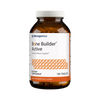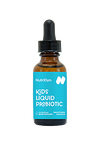Researchers (Yale and others have evidence that carbs and sucralose, AKA Splenda work together to confuse the brain, which miscommunicates with the body and blunts its ability to metabolize sugar appropriately.
Can Sucralose (AKA Splenda) artificial sweetener make you fatter, sicker?
- News
- 03 May, 2020
A common artificial sweetener might be making you fatter, sicker
Original Article: Dr Direct 4U and https://grandrapidspress-mi.newsmemory.com/?token=qpS1EPZFSYmVfVtQvVuGvcLiS8hb06Vq
Laura Reiley Washington Post

Sucralose-based artificial sweetener derived from sugar Plant based Stevia
Carbs and sucralose work together to confuse the brain,which miscommunicates with the body and blunts its ability to metabolize sugar appropriately.
A study published in the journal Cell Metabolism by Yale researchers found that the consumption of the common artificial sweetener sucralose (found in Splenda, Zerocal, Sukrana, SucraPlus and other brands) in combination with carbohydrates can swiftly turn a healthy person into one with high blood sugar. From whole grain English muffins to reduced-sugar ketchup, sucralose is found in thousands of baked goods, condiments, syrups and other goods — almost all of them containing carbs.
The finding, which has yet to be replicated in other studies, raises new questions about the use of artificial sweeteners and their effects on weight gain and overall health.
In the Yale study, researchers took 60 healthy-weight individuals and separated them into three groups: A group that consumed a beverage containing the equivalent of two packets of sucralose sweetener, a second group that consumed a beverage sweetened with table sugar at the equivalent sweetness, and a third control group that had a beverage with the artificial sweetener and a carbohydrate, maltodextrin.
The molecules of maltodextrin don’t bind to taste receptors in the mouth and are impossible to detect. While the sensation of the third group’s beverage was identical to the Splenda-only group, only this group exhibited significant adverse health effects.
The artificial sweetener by itself seemed to be fine, the researchers discovered, but that changed when combined with a carbohydrate. Seven beverages over two weeks and the previously healthy people in this group became glucose intolerant, a metabolic condition that results in elevated blood glucose levels and puts people at an increased risk for diabetes.
The finding follows a study in JAMA Internal Medicine last year that
found that consumption of two or more glasses of artificially sweetened soft drinks a day increased deaths from circulatory diseases. And a 2008 study by scientists at Purdue University showed that artificial sweeteners alone could result in higher blood pressure, weight gain, and increased risk of diabetes, stroke and heart disease in rats. The researchers found that artificial sweetener on its own did not affect metabolism, “but when (ingested) with a carbohydrate it’s mishandled in such a way to have an adaptation in the brain and the sensitivity to sweetness is changed.”
The FDA has approved the five artificial sweeteners saccharin, acesulfame, aspartame, neotame and sucralose as well as the natural low-calorie sweetener stevia. Splenda is one of the most popular ones on the market. It’s 600 times sweeter than table sugar, the FDA says.
While sugar has been proven to lead to obesity, heart disease, diabetes and other health issues, Splenda has helped millions of people lose weight, said Ted Gelov, chief executive of Heartland Food Products Group, which owns Splenda. And yet, sugar consumption in the U.S. has declined over the past two decades even as obesity rates have continued to skyrocket. According to the American Medical Association, nearly 40% of American adults are obese.
Researchers say the carbs and sucralose work together to confuse the brain, which miscommunicates with the body and blunts its ability to metabolize sugar appropriately.













